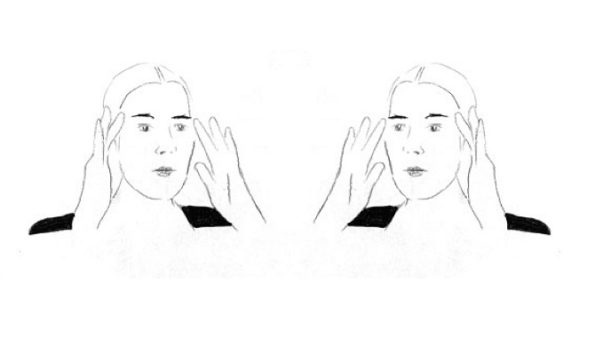Search
To search for an exact match, type the word or phrase you want in quotation marks.
A*DESK has been offering since 2002 contents about criticism and contemporary art. A*DESK has become consolidated thanks to all those who have believed in the project, all those who have followed us, debating, participating and collaborating. Many people have collaborated with A*DESK, and continue to do so. Their efforts, knowledge and belief in the project are what make it grow internationally. At A*DESK we have also generated work for over one hundred professionals in culture, from small collaborations with reviews and classes, to more prolonged and intense collaborations.
At A*DESK we believe in the need for free and universal access to culture and knowledge. We want to carry on being independent, remaining open to more ideas and opinions. If you believe in A*DESK, we need your backing to be able to continue. You can now participate in the project by supporting it. You can choose how much you want to contribute to the project.
You can decide how much you want to bring to the project.

The second version of Zen Fascist by Ariadna Guiteras was presented at Hangar last 26 July, (the first was presented in 2014). There is no documentation of this behind closed doors performance. With this text I’d like to try and conserve this latent state, and not analyse the piece, to endeavour to remain in the margins and make an exercise out of this decentring.
In my mind I see a place, it is an illuminated space, it’s clear, there are no shadows. We are a fairly large group of people we’ve brought yoga mats, beach towels and tablecloths to sit on, so the floor has become a patchwork of different colours and materials. There is large ball, yellow in colour, of the type used in Pilates, and there is a natural plant with elongated leaves.
There are two points in this vision that to me seem powerful. One is the space viewed from afar it’s hard to define whether it is a house with a large salon, a gentrified loft, a warehouse, or a social centre. But what it’s clearly possible to sense is the suspicion that something is going on there. The other is the union of the bodies. From where I am I can see almost all of them, they are bodies that are totally different from each other, but for some reason they are perceived as united, linked to each other, with the same energy passing through them. Mine as well.
The bodies repeat a series of movements, which Ariadna emailed to us, so that we could memorize them, in the form of images extracted from the rhetoric of neoliberal wellbeing; facial massages to apply cosmetic products, yoga postures to improve the function of our productive self. During the performance for most of the time there is silence, interrupted by phrases that Ariadna had sent to some of the participants, who repeat them without any pre-established rules, according to the spontaneous and organic rhythm being gestated.
At this point an intermission appears in my mental vision. It is an old man with spiky hair , a sort of ancient punk avant-la-lettre. I remember him when I think about Lucia Joyce (the dancer, not the one rejected nor the daughter of) and she springs to my mind as Ariadna begins the session, standing up, on one side of the space.
When Samuel Beckett wrote Endgame in 1957, the echoes of an interior destruction caused by the Second World War and its consequences still seem to pulse through it. In this undefined place with two windows and two rubbish bins that configure the scenography of the work, life has a harsh, cold and damaging aspect, beneath a caustic sense of humour, a crude irony and a general sensation of dejection within a game of repetition. Yet the atmospheres of Becket set alight and illuminate. They oblige you to place yourself in that small gap that has been left on a lateral margin of the folio, there where he made his drawings while he wrote.
From this marginalia of drawings/symbols made with a quill pen an invitation is made, a proposal of commitment to stay walking on thin ice, a way of being in the world, a subjectivity of oily iridescence. In Hangar, a zone of the city with a future in standby while skyscrapers have appeared around it, a no-man’s land full of syncopated energies, body-machines who desire to unite as if in a secret society, a congregation of consciences, happy and bleeding as in the song by PJ Harvey.
There is a bit of paper that has been hanging from different walls during years, with the same bit of dirty and worn out sky, with a poem by Becket that is like a philologist’s mini-mantra: […] what – / what is the word – / seeing all this – / all this this – / all this this here – […] But at this specific moment in Hangar, while I roll up again the yoga mat that I bought not so long ago in Decathlon, I think of the words of Clov in Endgame: Mean something! You and I, mean something! (Brief laugh). Ah, that’s a good one! What’s even better: I imagine Ariadna Guiteras and Samuel Beckett in a room, deciding to unite their otherness/significance for a while. Samuel Beckett would now be Samuel Guiteras, and would write this poem:
Your body is empowering
treat time as your money
modern science as ancient truth
zen Fascists will control you
we would become supermen and superwomen
The Zen Fascist of 2016, on the occasion of the exhibition “Segueixi els rastres com si fos miop. Art Jove 2006-2016” (Follow the trail as though you were near-sighted) at Arts Santa Mònica, uses repetition to cause the subtle and subversive force of possibility to emerge, from the verification of an impossible act. The first time in 2014 the project was developed stemming from an investigation into yoga and the mechanisms of control of the body within the capitalist context, taking a series of gestures and texts as base materials. The first obtained from Apps for smartphones related to the practice of yoga, the latter from the advertising rhetoric of fitness companies, with references to spiritual Darwinism and quotes from authors like Silvia Federici, Hannah Arendt and Foucault. From one edition to the other, there is a sui generis passage of the act that goes from investigation to that of a proposal of collective empowerment.
Following its future or linking it to a bi-directionality with Zen Fascist, last 14 March Ariadna Guiteras presented la performance A natural body / Healthy Gestures #beauty, in the cycle Embodied Cinema of La Kino in the espai 2 of Àngels Barcelona, in which once again the control of the body and its narratives, this time shifted to the mechanism of an online tutorial are proposed through gesture and repetition as a crack in the wall.
More than becoming super-beings, I believe we aspire to become the semantics of being/becoming, intermittent and tentacular, and this is what Zen Fascist evokes. From the margins of a white page, an interesting place from where to try anything that isn’t anything.

Alba Mayol Curci is an artist and philologist. She investigates peripheral narratives in which emotional mechanisms can function as an activism.
"A desk is a dangerous place from which to watch the world" (John Le Carré)